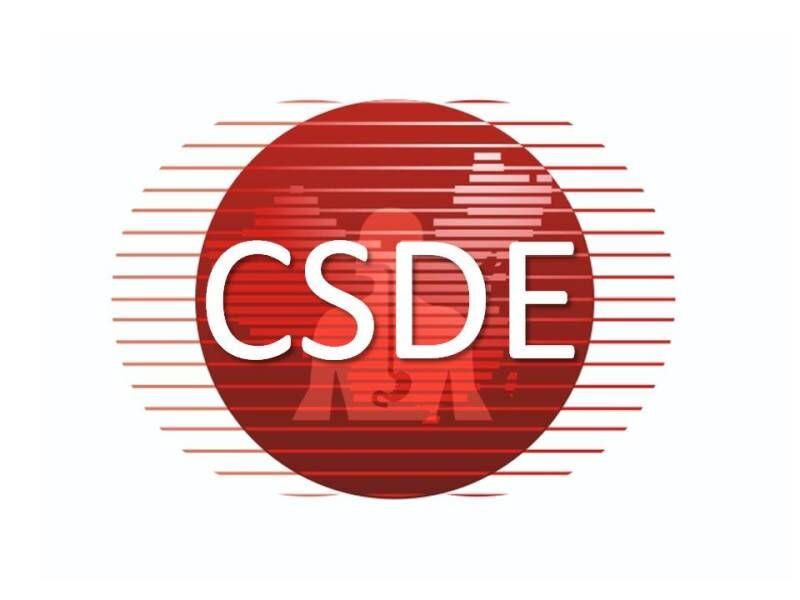/2020/06-12%20ISDE%20Events/202012-Facebook-GERD.png)
Gastroesophageal Reflux Disease ( GERD) is the most prevalent esophageal disease. It is a condition affecting up to 20% of the western world and has a significant negative impact in the patient’s quality of life.
Join us for the next live presentation and discussion on Controversies in Gastroesophageal Reflux Disease. This interactive presentation will cover long term PPI therapy, endoscopic management of GERD and when to consider surgery. This virtual presentation will take place on Wednesday, December 16 from 13:30 –15:00 GMT.
- 08:30 EST New York
- 13:30 GMT
- 14:30 CET Amsterdam
- 22:30 JST Tokyo
Watch The Recording
Moderated by
/2020/06-12%20ISDE%20Events/Jan_Tacks.jpg)
Jan Tack
University of Leuven (The Netherlands)
Professor Jan Tack is Head of the Division of Gastroenterology and Hepatology in the Leuven University Hospital, Professor in Internal Medicine at the University of Leuven, and a founding researcher of TARGID (the Translational Research Center for Gastrointestinal Disorders) at the University of Leuven. Professor Tack is President of the Rome Foundation for Functional Gastrointestinal Disorders. Professor Tack’s scientific interest focuses on neurogastroenterology and motility, and includes diverse topics such as the pathophysiology and management of gastrointestinal functional and motor disorders (including functional dyspepsia, gastroparesis, gastroesophageal reflux disease, globus, dysphagia, dumping syndrome, chronic constipation, irritable bowel syndrome and opioid-induced bowel dysfunction), the physiology and pharmacology of the enteric nervous system, gastrointestinal hormones and the control of satiation and food intake.
Professor Tack won several awards for Basic and Clinical Research in GI Science. He is Past-President of the European Society of Esophagology, and Past-President of the International Society for Diseases of the Esophagus. He has served as founding Editor-in-chief of the United European Gastroenterology Journal, and as co-editor for Neurogastroenterology and Motility, Gastroenterology, Gut and Digestion. He serves or has served as a member of the editorial board of Gastroenterology, American Journal of Gastroenterology, Alimentary Pharmacology and Therapeutics, Journal of Internal Medicine, Bailliere’s Best Practice and Research in Clinical Gastroenterology, Annals of Gastroenterology and Journal of Gastroenterology.
/2020/06-12%20ISDE%20Events/KerryDunbars.jpg)
Kerry Dunbar
University of Texas Southwestern Medical Center (USA) (moderator and speaker)
Dr. Dunbar is an Associate Professor of Medicine at the University of Texas Southwestern Medical Center and the Gastroenterology Section Chief of the VA North Texas Healthcare System in Dallas, Texas. She graduated from the University of Texas Southwestern Medical School and completed her internal medicine residency and GI fellowship at Johns Hopkins Hospital in Baltimore, Maryland. During her time at Johns Hopkins, she was an Assistant Chief of Service and completed a PhD in Clinical Investigation at the Johns Hopkins Bloomberg School of Public Health. She is an Associate Program Director for the UTSW Internal Medicine residency program. Her clinical and research interests include gastroesophageal reflux disease, Barrett’s esophagus, esophageal motility disorders, eosinophilic esophagitis, and novel endoscopic imaging technologies.
Speakers and Panelists
/2020/06-12%20ISDE%20Events/Haruhiro%20Inoue_s.jpg)
Haruhiro Inoue
Showa University School of Medicine (Japan)
Dr. Haruhiro Inoue is a world-renowned surgeon and endoscopist. He is a professor at Showa University School of Medicine and Chairman of the Digestive Disease Center at Showa University Koto Toyosu Hospital in Tokyo, Japan.
Dr. Inoue’s clinical achievements are wide-ranging. In 1992, he developed a technique (cap-EMR) that simplified the performance of endoscopic mucosal resection (EMR). In 2000, he reported the world’s first EMR for Barrett’s intramucosal cancer, and in 2003, he again reported a circumferential EMR for Barrett’s esophagus with high grade dysplasia. This also served as the first clinical case of antireflux mucosectomy (ARMS). In 2008, he performed the world’s first clinical case of per-oral endoscopic myotomy (POEM), and to date his team has treated more than 2100 achalasia patients with the POEM procedure. In 2014, he reported the endoscopic removal of a submucosal tumor (SMT) using a POEM-like procedure, per-oral endoscopic tumor resection (POET). Also in 2014, he reported the ARMS procedure for PPI-resistant GERD. Now it advanced as antireflux mucosal ablation (ARMA). In 2019, he reported POEM+F (POEM+fundoplication) as a pure NOTES surgery for PPI refractory GERD.
Dr. Inoue is an honorary member of the Russian Society of Endoscopy, and the German Society of Radiology and Digestive Endoscopy. In 2008, he has become a Fellow of ASGE, and he was honored twice with the society’s Crystal award (2006 and 2013). In 2011, he received the Pioneer in Endoscopy Award from the Society of American gastrointestinal and endoscopic Surgeons (SAGES). In 2017, he received the Bushell Lecture Award from Australian society of gastroenterology. He is a long-term full member of ISDE.
/2020/06-12%20ISDE%20Events/LiphamJohns.jpg)
John Lipham
Keck School of Medicine of USC (USA)
John C. Lipham, M.D. is Chief of the Division of Upper GI and General Surgery and Professor of Surgery at the Keck School of Medicine of USC. He was the Inaugural President of the American Foregut Society. Dr Lipham is also the Director of the USC Digestive Health Center and serves as the Foregut Cancer Program Director and Chief of USC Affiliated Academic Programs at Hoag Hospital and is the James & Pamela Muzzy Endowed Chair in GI Cancer. He focuses on benign and malignant diseases of the esophagus and stomach. His clinical interests include the diagnosis and treatment of GERD, hiatal hernias, Barrett's esophagus, esophageal motility disorders, achalasia, malignant diseases of the esophagus and stomach. His current research interests include developing minimally invasive methods of diagnosing and treating gastroesophageal reflux disease, Barrett's, esophageal cancer and gastric cancer.
.png)


